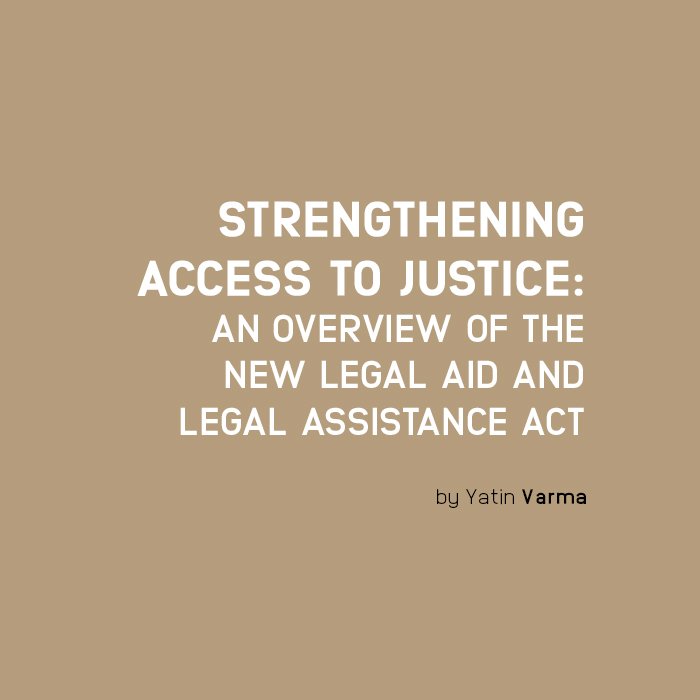Introduction:-
While the previous Legal Aid and Legal Assistance Act made significant headway in providing access to justice by raising the income threshold and introducing legal assistance during police enquiries and bail applications, the new law introduces a consolidated and inclusive framework.
Objectives:-
The primary objective of the Act is to:
– Enhance access to legal representation for low-income individuals;
– Widen the scope of eligibility for legal aid and assistance;
– Make the legal aid process more efficient, transparent, and aligned with principles of fairness and justice.
Key Provisions:-
1. Expanded Eligibility Criteria
– Income Ceiling: The applicant’s average monthly household income must not exceed Rs 25,000.
– Asset Cap: The total assets (excluding clothing, tools of trade, and subject matter of the proceedings) must not exceed Rs 1 million.
– Special discretion is granted to the Court to allow legal aid even if assets exceed this threshold, in the interest of justice.
2. Broader Scope of Legal Aid
The Act covers:
– Civil proceedings (including extrajudicial matters);
– Criminal trials and appeals;
– Juvenile justice matters;
– Legal assistance during police enquiry and for bail applications.
3. Mandatory Information by Authorities
– Courts must inform unrepresented parties of their right to apply for legal aid in a language they understand.
– Police officers must inform unrepresented persons under warning of their right to legal assistance before giving a statement.
4. Application and Verification Process
– Applications are submitted by sworn affidavit using the prescribed form.
– Courts may inquire into the financial means of the applicant.
– False or misleading information is punishable by fine (up to Rs 1 million) and penal servitude (up to 3 years).
5. Legal Assistance to Juveniles
– Courts must grant legal aid/assistance to juveniles on request or when unrepresented.
– Juveniles must be brought before Court within 24 hours if no responsible adult applies on their behalf.
6. Assignment and Regulation of Legal Practitioners
– Courts assign a barrister, attorney, or both.
– Assigned counsel must not request fees from the client and are compensated by the Consolidated Fund.
– Breach of provisions leads to revocation of aid and penalties.
7. Costs and Government Recovery
– Costs awarded to legal aid recipients accrue to the Government.
– Courts may award costs against aid recipients, payable from public funds.
Institutional Framework:-
The Act empowers:
– The Chief Justice to make rules for implementation;
– The Attorney-General to amend the Schedule by regulation.
It also exempts beneficiaries from court fees and related expenses.
Commencement & Transitional Provisions:-
– The Act shall come into force on a date fixed by Proclamation.
– Pending applications under the repealed law will be processed under the former regime.
Application Form:-
The Schedule provides a comprehensive form capturing personal, income, household, asset, and dependent details, along with a sworn declaration under penalty for misrepresentation.
Conclusion:-
The new Legal Aid and Legal Assistance Act marks a bold step towards further democratising legal representation in Mauritius. It recognises that justice should not be the privilege of the wealthy, but a right accessible to all, regardless of financial means. By codifying broader protections and increasing state responsibility, this legislation promotes not just procedural fairness but substantive justice in our legal system.
YATIN VARMA


Leave a Reply